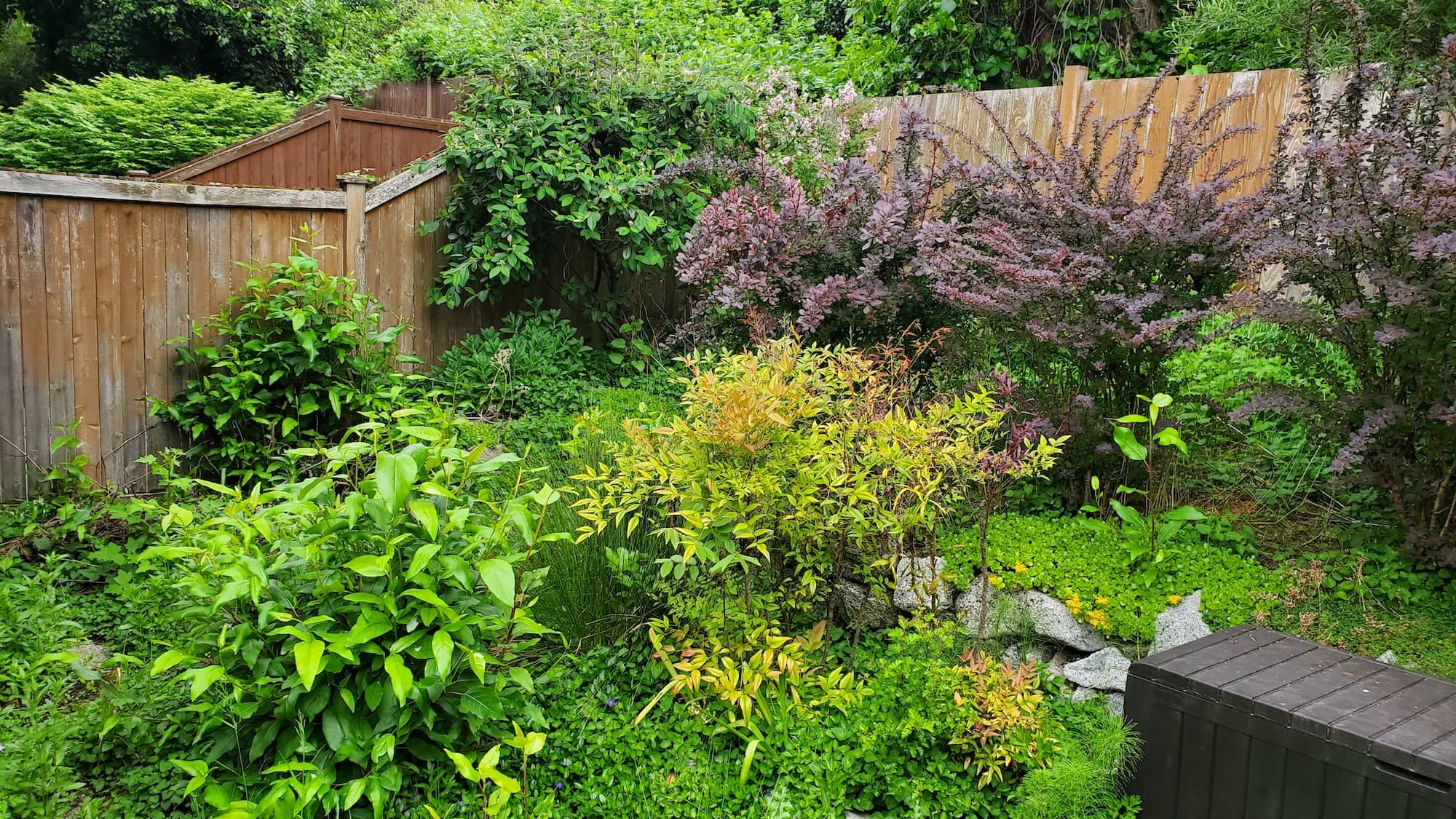West Seattle Weeding native plant beds
Homeowner’s Issue
West Seattle gardens face a specific set of headaches: heavy winter rain, shallow topsoil in upland streets, salty spray on Alki-facing beds, and shady parcels under big maples around Lincoln Park that stay damp and mossy. Much of the neighborhood sits on glacially influenced soils and compacted fill—so weeds that like disturbance (chickweed, oxalis, annual grasses) come back fast. In sunnier, wind-exposed spots like Harbor Ave and Fauntleroy slopes, drought-tolerant natives need clean beds to compete with bindweed and blackberry roots.
HOAs and neighbors care about curb appeal here, so beds that look untidy lower your home’s visual value. Seattle’s rain pattern — wet Oct–May and drier Jul–Aug — means the main weed flushes happen in spring plus a germination bump in fall. Drainage matters: West Seattle’s hills shed water toward the flats; poor drainage equals shallow roots and moss. We focus on sustainable, hands-on fixes that suit these microclimates: manual removal, mulch to hold summer moisture, and soil improvement that helps natives outcompete weeds without herbicides.
Our Quality Service
We come in with practical, low-impact methods: weed forks, hori-hori knives, ergonomic hand tools, and breathable compostable bags. We remove weeds at the root by hand, prune back overgrowth, and follow with an organic mulch layer where appropriate. For sloped beds we use erosion-control tactics—staggered plantings, jute tie-ins, and strategic mulch anchoring.
Typical timelines: small bed (under 100 sq ft) — 1–2 hours; medium (100–400 sq ft) — half day; large or problem sites — full day or phased visits. We avoid chemicals and work around Seattle’s wetter months to reduce soil compaction; best deep-clean windows are late spring and early fall. Benefits: safer beds for kids and pets, better curb appeal, fewer repeat visits, and a longer-term reduction in invasive pressure.
What’s Included
- Site assessment and weed-ID (native vs. invasive)
- Manual root removal and hand-pulling
- Light pruning and deadheading of natives
- Organic mulch application (where requested)
- Debris hauling and tidy sweep of paths/edges
Options / Upgrades:
- Mulch + landscape fabric (select areas only, per plant needs)
- Soil amendment with compost for improved structure
- Planting new native plugs to fill gaps
- Seasonal maintenance plans (monthly, bi-monthly, quarterly)
- Haul-away to dump vs. green bin composting for yard waste
Before & After / Expectations
Real talk: we’ll make a mess while working — piles of pulled roots, mud, and leaf litter are normal until we haul them out. Access matters: narrow side yards or locked gates slow work. Expect 1–3 business days for scheduling on smaller jobs; complex restorations are booked into a multi-week plan.
Post-service care for West Seattle:
- Water new or amended beds early morning during summer restrictions; deep, infrequent soakings help natives establish.
- Mulch in late spring or early fall to suppress the spring/late-fall weed germination cycles.
- Watch shady areas for moss in winter; aerate compacted patches and thin overhead cover if moss persists.
- Blackberry and ivy regrowth: plan on follow-up visits the first two seasons.
FAQs
Q: Do you use herbicides?
A: No. We use only manual, mechanical, and organic methods — no chemical herbicides.
Q: How often will I need service?
A: Most West Seattle native beds do well with quarterly visits; high-pressure sites (blackberry/ivy) may need bi-monthly attention the first year.
Q: Can you compost the green waste?
A: Yes. We can haul to disposal or place in your green bin/compost option per Seattle Public Utilities guidelines.
Q: Do you work on slopes near retaining walls?
A: Yes. We assess erosion risk and employ erosion-control planting and mulch anchoring to stabilize slopes.
Call to Action
If you own a native plant bed in West Seattle — whether near Alki, Lincoln Park, or up on the hill — book a free estimate. Quick scheduling, hands-on crews, and sustainable methods that actually last. Email neatandtidyseattle@gmail.com to send photos or set an on-site visit.










